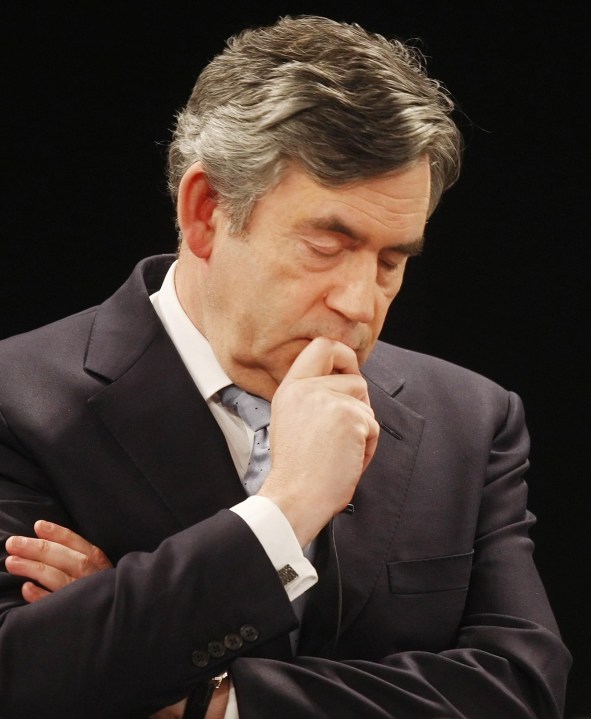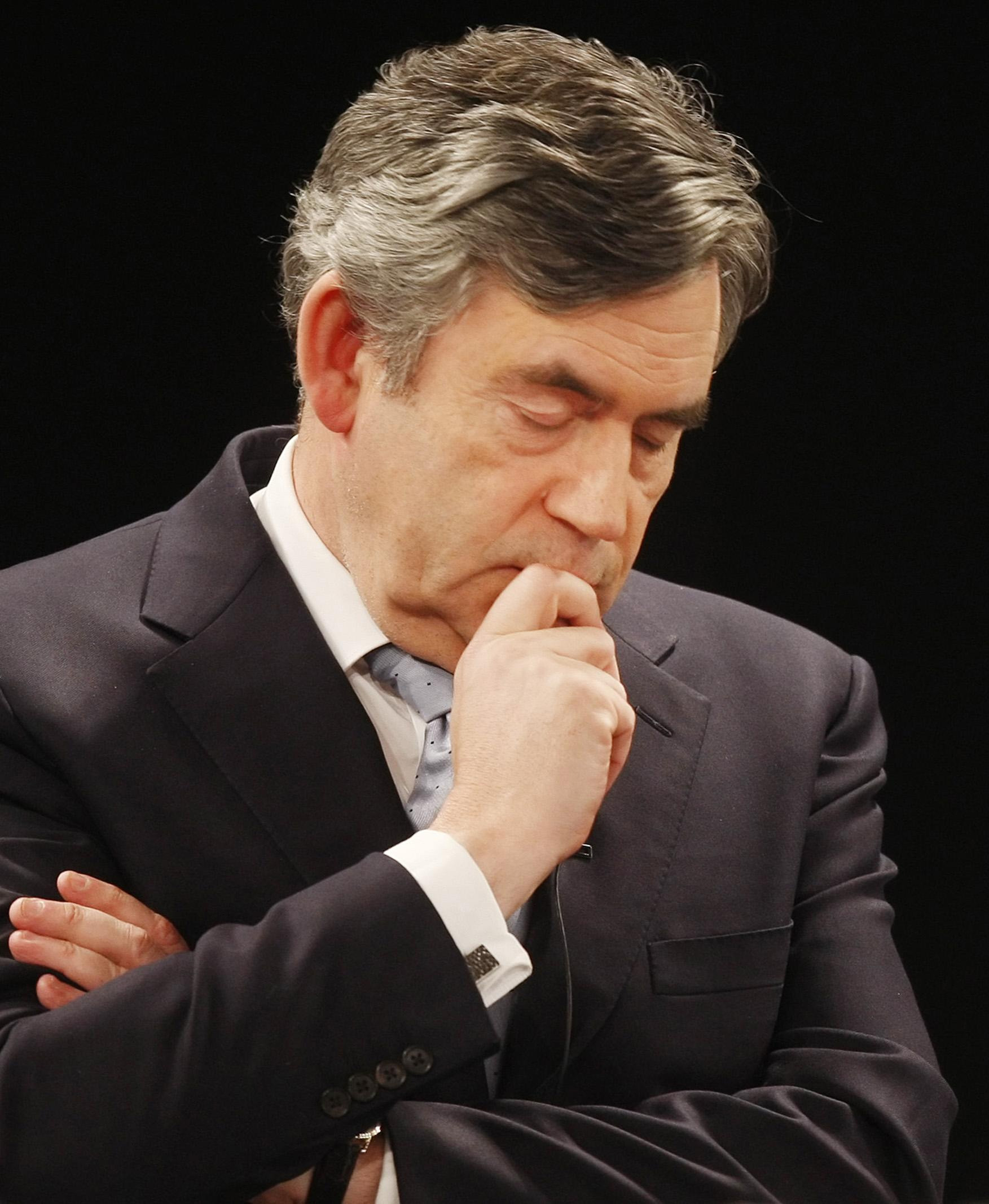 Every financial collapse in the City you can normally be traced back to a testosterone-sodden trading floor where young men believed a little too much in their own hype. Britain is in the unusual position that both our economic and political collapse can be traced to the same gang – the ones that Gordon Brown assembled in the Treasury. In my cover piece for today’s magazine, I detail the damage they did: to our economy and to the Labour Party.
Every financial collapse in the City you can normally be traced back to a testosterone-sodden trading floor where young men believed a little too much in their own hype. Britain is in the unusual position that both our economic and political collapse can be traced to the same gang – the ones that Gordon Brown assembled in the Treasury. In my cover piece for today’s magazine, I detail the damage they did: to our economy and to the Labour Party.
At the heart of McBride’s fall was the hubris, the risk-taking. Imagine being so stupid as to put all those vile smears in an email sent from 10 Downing Street computer. But the risks the Brown-Balls-Whelan-McBride team took with the British economy were no less great. And far more significant. Imagine the sheer audacity required to tear up the system of banking regulation, and to invent a tripartite system based on nothing more than faith in your own brilliance. To have the central bank chase an inflation targeting, New Zealand style – and to do this on the sly, preferring not to share this secret with the British public or the City in a manifesto.
And, as CoffeeHousers hate me saying, Balls was brilliant. I was a business journalist at the time, and heard the reports. There he sat, this whiz kid barely 30 years old his own mammoth office, giving crystal clear directions to the civil service about the revolution he pretty much personally oversaw. They may not have agreed with him but, while Brown ummed and ahhed, Balls went at it with Napoleonic vigour. They liked him for his direction: there was never any doubt what to do. Balls wrote the five tests for UK Euro entry on the back of an envelope in a taxi in Washington (and for keeping us out of Brussels he has my sincere thanks). But for concocting his own ‘golden rules’ he has much explaining to do – because this was the beginning of today’s budget crisis. It detached state spending from tax revenues, allowing massive overspends even in the good years, when debt was supposed to be repaid. Balls broke this most basic of economic rules: pay down debt in the fat years.
And spin? The Treasury spin team was formidable, running rings around financial journalists – either rewarding them or alienating them as they saw fit. There they were, letting Britain get fat on a debt-induced bubble, and everyone was writing what a genius Brown was. I was on the business desk of The Times when Labour was first elected and the then economics editor thought differently, and started to say that this tartan emperor had no clothes. She was blackballed by the Treasury, stopped from even receiving press releases. The (then) editor of the newspaper had to write to the Permanent Secretary pointing out how outrageous this was. It was staggering, bullying behaviour: quite unheard of in financial journalism. But this was how Brown carried on: he brooked no opposition.
The events of last weekend make more sense when you put in the context of where Team Brown came from. From 1997 to 2007 pretty much everything went their way. And rather than being a poisonous influence in Team Brown, McBride was more of a Mowgli figure; found wandering the VAT department of the Treasury and then trained to hunt like the rest of them. Ed Balls would play dirty his own way: he’d collude with the chairs of select committees to bring down various government policies. But he was utterly of the pack, despite his hilarious protestations to the contrary.
What Team Brown did on their pitiless route to No10 was not the Labour Party way. To put this whole thing down as Labour spin is to misunderstand, fundamentally, what happened. Brown’s tactics are not Labour tactics – and this is why he succeeded. He was an omnivore in a party of herbivores. His plotted a course of sectarian warfare – and used Labour’s ethos of unity to defend himself against any counter-attack. It was the worst form of hyprocrisy, but it took him to No10. In his head, the end justified the means: his moral compass was better than anyone else’s. So the morally best outcome is his being in power.
It also chopped down more able Labour people than the Tories ever dream of doing. In my cover piece for this week’s magazine, I quote a former Cabinet member making this point:
“This is why Gordon may go down in history as the single-handed destroyer of the New Labour project. One of the ironies of it all is that he has been much more vicious in opposing others than anyone has in opposing him. Look at Labour’s history. Ever since Tony Benn’s 1981 leadership election, we have had the sense that division finishes you. So even when attacked, people have chosen not to respond because that makes the situation absolutely terminal. But Gordon has been absolutely cynical about it, he has not been bound by that code and everyone else has.”
This is largely why Labour stands so low. There are people in Labour that, if they had not been cut down, they could do a very good job denouncing the Tories as lightweights. Defeat them by intellectual arguments, not by insinuating that David Cameron is a toff with warts on his bottom or whatever McBride’s “absolutely brilliant” idea was.
Brown’s hit men never really came after Blair until the end. Their target was Blairism’s ability to regenerate. He wanted to cut down the choice agenda. Peter Oborne put it brilliantly, long ago. Fundamentaly, Blair believes in the market. Fundamentally, Brown believes in the state. The latter agenda died out with the last century: in every sphere of human endeavour, from watching TV to shopping, people want and seek choice and control. Brown has left Labour on the wrong side of history.
Is there time for the reformist, attractive-to-voters part of Labour to grow again? With McBride gone, it can try to reassert itself. But Brown has allied with the Unite trade union (Whelan being the middle-man), which is now Labour’s paymaster. There are already stories of Unite demanding safe seats for its men, and it already has one of its men as general-secretary of the Labour Party. Unite hates the Blair choice agenda, and will use its muscle over Labour at a very vulnerable time to cut down any vestiges of it. Labour is in danger of going back to the days where its future was decided not by debate but cabal and backroom deal. As a Labour privy councillor tells me in my piece. “We risk going back to the worst days of what Neil Kinnock fought against.”
Brown’s combat skills were vampire-like. He has strength in the darkness, in the shadows, but he just can’t seem to be able to fight in daylight. If Labour had a proper leadership election (an idea Brown would call ‘divisive’) they’d have seen his shortcomings – and, who knows, maybe have changed their mind as the Tories did. In the end, they let themselves be bullied by a tiny but ruthless cabal. And the rest is history.








Comments